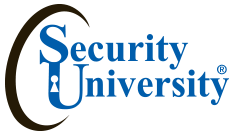This 72 hour Qualified Security Hacking Certificate class and exam teaches IT Managers & Computer Security Professionals how to be an security hacker to defend your network from malicious software like Trojans, viruses and phishing attempts. In this class you will see 15+ network & computer security tools, you'll learn Network Penetration Testing & Security Hacking, Firewall VPN best practices, understand how Viruses and Trojans get on your network and how to, with effective Patch Management, mitigate risk. Including, how to stop buffer overflows by writing secure code. Lastly, this class shows you how to do computer investigations without compromising your data.
| Class Fee: | $3,990 |
| Time: | 72 hrs |
| Learning Level: | Entry |
| Contact Hours: | 40 hr 1 wk + 32 hr pre-study & 2hr exam |
| Prerequisites: | Understanding of TCP/IP Protocols |
| Credits: | 72 CPE / 3 CEU |
| Method of Delivery: | Residential (face-to-face) or Hybrid |
| Instructor: | TBD |
| Method of Evaluation: | 95 % attendance 2. 100 % completion of Lab |
| Grading: | Pass = Attendance+ labs & quizzes Fail > 95% Attendance |
| Text Materials: | labs, SU Pen Testing Materials, resource CD’s and attack handouts |
Sample Job Titles:
Contracting Officer (CO)
Contracting Officer Technical Representative (COTR)
Information Assurance (IA) Manager Information
Assurance (IA) Program Manager Information
Assurance (IA) Security Officer Information Security
Program Manager Information Systems Security
Manager (ISSM) Information Systems Security Officer
(ISSO) Information Systems Security Operator
This accelerated class is taught using face to face modality or hybrid modality [excluding veterans using the Veterans Education benefits, can only attend in the face to-face modality]. Class includes 72 hours of contact studies, labs, reading assignments and final exam - passing the final exam is a requirement for graduation.
Who should attend: 36 hrs lecture/ 36 hrs labs
CIO's, Network Managers, Operations Managers, IT Security Auditor's, IT Auditors, Bank Examiners. Information Systems Security Operations - Oversees and ensures that the appropriate operational security posture (e.g., network and system security, physical and environmental protection, personnel security, incident handling, security training and awareness) is implemented and maintained for an information system or program. Advises the Authorizing Official (AO), an information system owner, or the Chief Information Security Officer (CISO) on the security of an information system or program.
Text Materials: labs, SU Pen Testing Materials, resource CD’s and attack handouts. Machines a Dual Core 4M Ram, 350 Gig drives, running MS OS, linux, and VMWare Workstation Tools for class- Whois, Google Hacking, Nslookup , Sam Spade, Traceroute , NMap , HTTrack , Superscan , Nessus, PSTool, Nbtstat, Solarwinds ,Netcat , John the ripper , Nikto/Wikto ,Web Scarab , HTTP Tunnel (hts.exe) , LCP ,Cain and Abel, Ettercap system hacking ,John the Ripper Wireshark sniffers, TCP dump, D sniff , tcpdump, Metasploit, ISS exploit, web app,Core Impact , Snort , Infostego, Etherape ,Firefox with plugins (Hackbar, XSSme...) ,, ebgoat, X Wget, Cyrpto tool, 'Curl'
Ethical Hacking - Gather the Data - You'll uncover the hackers' favorite penetration techniques and how to protect against them.
KU Outcomes
- Students will be able to plan, organize and perform penetration testing on a simple network.
- Students will be able to analyze system components and determine how they will interact in a composed system.
- Students will be able to analyze a system design and determine if the design will meet the system security requirements
Grades -All students must ordinarily take all quizzes, labs, final exam and submit the class practical in order to be eligible for a Q/ISP, Q/IAP, Q/SSE, or Q/WP credential unless granted an exception in writing by the President. Know that Q/ISP classes draws quite the spectrum of students, including "those less comfortable," "those more comfortable," and those somewhere in between. However, what ultimately matters in this course is not so much where you end up relative to your classmates but where you end up relative to yourself in on Friday of class. The course is graded as a pass or fail solely on your attendance and participation. Those less comfortable and somewhere in between are not at a disadvantage vis-à-vis those more comfortable. Escalating labs help you prepare for real world scenarios. Each labs escalates upon itself, increasing in intensity, rising to the next level, while you’re mitigating the threat step by step
Books – Ebooks are provided for this course. No external books are required. However, you may want to supplement your preparation for or review of some lectures with self-assigned readings relevant to those lectures' content from either of the books below. The first is intended for those inexperienced in (or less comfortable with the idea of) hacking. The second is intended for those experienced in (or more comfortable with the idea of) hacking. Both are available at sites like Amazon.com. Both are avail at the SU Hacker Library. Realize that free, if not superior, resources can be found on the SU website.
Those Less Comfortable - Hacking for Dummies, Kevin Beaver - Publication Date: January 29, 2013 | ISBN-10: 1118380932 | Edition: 4 For
Those More Comfortable The Basics of Hacking and Penetration Testing: Ethical Hacking and Penetration Testing Made Easy by Patrick Ngebretson (Jun 24, 2013)The book below is recommended for those interested in understanding how their own computers work for personal edification



